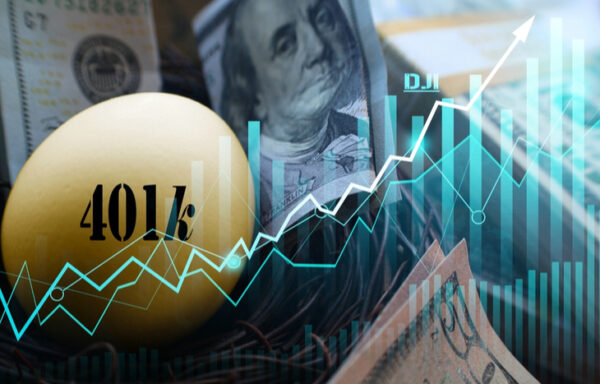What Will Buffett Sell Next?
Berkshire Hathaway (NYSE: BRK-B) announced the sale of its newspaper business to Lee Enterprises (NYSE: LEE) this week for $140 million.
Warren Buffett’s firm has owned The Buffalo News since the late 1970s. In the early 2010s, it bought nearly 30 papers for $344 million.
In his 2012 letter to shareholders, Buffett expressed optimism about the importance of local news and prospects for the newspaper business. “I believe these papers will meet or exceed our economic test for acquisitions,” he wrote.
This week’s sale suggests the economics of the news business are too hard for even the world’s greatest investor.
To be honest, the sale of the newspaper business is more interesting to journalists than it is to investors. A $140 million transaction is tantamount to a rounding error for Berkshire Hathaway.
(And in case you’re worried about Buffett’s “losing” newspaper trade, Berkshire will provide Lee with $576 million in long-term financing at a 9% annual rate as part of the sale.)
The newspaper deal does raise an interesting question for investors who often look to the investing legend as a model for how they might manage their own holdings: What else might Buffett be looking to sell?
There’s a lot of talk about what Berkshire might buy with its nearly $130 billion cash hoard…
But Buffett is fond of saying, “Be fearful when others are greedy and be greedy when others are fearful.” And right now, there’s much more greed than fear on Wall Street.
Even fear of the novel coronavirus outbreak proved short-lived for markets. After a few days of selling, the focus returned to earnings and the Fed.
The coronavirus’ economic impact remains unknown, and the outbreak may resurface as a problem for investors. But for now, a “buy the dip” mentality remains in place. That is, “greed trumps fear.”
So it’s more a question of what Buffett might sell…
One idea that caught my attention comes via Doug Kass of Seabreeze Partners, who writes, “I believe Buffett will reduce his Apple (Nasdaq: AAPL) holdings – and other investors may not look positively on such a move.”
Kass has a long history with Buffett. At Berkshire’s 2013 annual meeting, he was invited to present the bear case on the company. Since then, Berkshire’s stock has slightly underperformed the S&P 500, but it is still up more than 100%.
Kass runs a short fund, meaning his job is to bet that certain stocks will fall. At the time he wrote his analysis, his fund was shorting Apple, which made news this week with its quarterly earnings.
Apple’s results beat expectations, highlighting record revenue and renewed strength in iPhone sales.
Apple shares jumped in response, hitting an all-time high on Wednesday. This was great news for anyone long on Apple, like Buffett. It was a setback for anyone shorting the stock, like Kass.
But Kass’ prediction that Berkshire will sell Apple wasn’t based on Apple’s performance. The quarterly report doesn’t change his call “in the least,” Kass tells me via email.
In fact, the higher Apple shares go, the more his analysis “works” – at least in theory…
Berkshire Hathaway first disclosed a stake in Apple in 2016. By the end of 2019, it owned more than 251 million shares of Apple, based on its SEC filings. As of December 31, Buffett was sitting on an unrealized gain of about $38 billion, Kass estimates.
With the stock up nearly 9% year to date, that unrealized gain is now approaching $50 billion. It is “the most substantial dollar return of any investment made by any entity of a publicly held company in history,” Kass declares.
He goes on, lauding Buffett for putting “an explanation point on his remarkable investing career with his spectacular investment in Apple. But too much of a good thing may no longer be wonderful for Berkshire Hathaway.”
(Again, this is pure speculation from someone with a vested interest in seeing Apple’s shares fall.)
There’s no real way of knowing what, if anything, Berkshire is doing with its Apple stake until its next 13F filing is made public.
(The SEC requires institutional money managers to reveal all investments of $100 million or more. Investors and journalists closely monitor these 13F filings to see what the biggest money managers, like Buffett, are buying and selling.)
Unlike Buffett, you probably don’t have to disclose your positions to the SEC. But if, like Buffett, you are sitting on big paper gains in Apple, or any other stock, here are some things you can do:
- Trim your position. There’s no sin in taking profits. Selling a portion of your holdings, say 10% or 20%, is a good habit to get into – especially after a big rally.Depending on how long you’ve owned Apple, you may be able to recoup your initial investment and end up playing with the house’s money.
- Set your stops. A stop loss triggers a sale when the stock falls to a certain level. You can set a stop loss order at any level you wish – either at a specific price or at a percentage. I recommend setting stop losses 10% to 25% below current levels.Use the upper end of the range for speculative stocks that move in big percentages. Use the lower end for more conservative names that don’t typically have big swings.
- Buy “insurance.” Hedge your bets by buying securities that are designed to profit if the market, or a certain stock, goes down in value. These include the ProShares family of “short” exchange-traded funds and other “bear” funds.There are also options strategies, including buying puts or selling covered calls, that can effectively protect your downside. (If you’re new to investing, go slow. Play small with options and avoid any leveraged funds.)
- Reset expectations. After a big market rally, many investors get overconfident and think the good times will go on forever.Understand no investment goes up in a straight line over a long period of time, and “don’t confuse brains with a bull market,” as the saying goes.
Doing any of these, or some combination of them, will buy you some peace of mind – which really is priceless.
About Aaron Task
Aaron is an expert writer and researcher who formerly served as editor-in-chief at Yahoo Finance, digital editor of Fortune, and executive editor and San Francisco bureau chief of TheStreet. You may have also seen him as a guest on CNBC, CBS This Morning, Fox Business, ABC News and other outlets.
A prolific writer and commentator, Aaron is the former host of Yahoo Finance’s video program The Daily Ticker. He has also hosted podcasts for Fortune (Fortune Unfiltered) and TheStreet (The Real Story). His latest on-air passion project, Seeking Alpha’s highly rated Alpha Trader podcast, features top Wall Street experts dissecting the market’s latest news and previewing significant upcoming events. He also regularly provides analysis for the free e-letter Wealthy Retirement, which we will be republishing here on Investment U.






